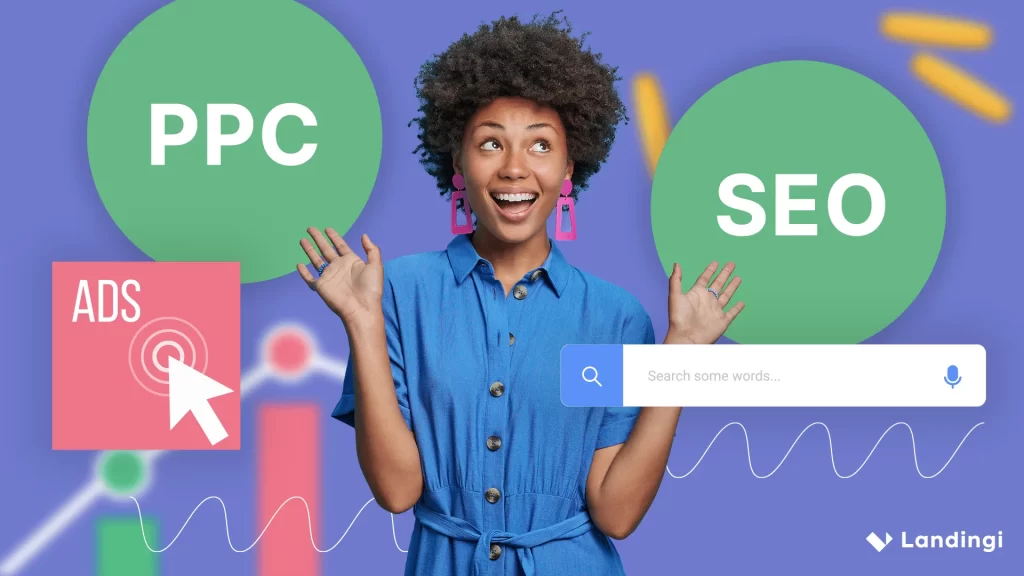When it comes to digital marketing, businesses often face the dilemma of choosing between Search Engine Optimization (SEO) and Pay-Per-Click (PPC) advertising. Both strategies aim to increase visibility and drive traffic to your website, but they achieve this in different ways. Understanding the nuances of each can help you decide which is more suitable for your business goals, budget, and industry. Let’s explore SEO and PPC in detail to determine which strategy might be better for your business.
What is SEO?
Search Engine Optimization (SEO) involves optimizing your website to rank higher in organic search engine results. It focuses on improving the quality and quantity of traffic through unpaid, organic methods. SEO is a long-term strategy that requires ongoing effort but can deliver lasting results.
Key Components of SEO:
- Keyword Research: Identifying the right keywords that potential customers use to find products or services.
- On-Page Optimization: Optimizing elements on your website, such as meta tags, headers, and content, for target keywords.
- Technical SEO: Ensuring your website’s backend, such as site speed, mobile-friendliness, and site architecture, is optimized for search engines.
- Content Creation: Producing high-quality, relevant content that satisfies user intent and attracts backlinks.
- Link Building: Earning backlinks from reputable sites to increase domain authority.
Pros of SEO:
- Cost-Effective in the Long Run: Once your site ranks, organic traffic can be sustained with minimal cost compared to continuous ad spend in PPC.
- Credibility and Trust: High-ranking organic results are perceived as more credible by users.
- Long-Term Results: SEO builds equity over time, leading to sustained traffic growth.
- Higher Click-Through Rates (CTR): Users often prefer organic listings over paid ads, leading to better CTR for organic results.
Cons of SEO:
- Time-Consuming: SEO is a long-term investment, and results can take months to materialize.
- Algorithm Dependence: Changes in search engine algorithms can impact rankings, requiring constant updates and adjustments.
- Competitive: Highly competitive industries may find it challenging to rank for valuable keywords.
What is PPC?
Pay-per-click (PPC) is an online advertising model where advertisers pay a fee each time their ad is clicked. The most common form of PPC is Google Ads, but it also includes platforms like Bing Ads, Facebook Ads, and LinkedIn Ads. PPC offers instant visibility and can be a powerful tool for driving immediate traffic.
Key Components of PPC:
- Keyword Targeting: Bidding on specific keywords to display ads in search engine results.
- Ad Copy: Crafting compelling advertisements that encourage clicks.
- Landing Pages: Optimizing landing pages to ensure they convert visitors into leads or customers.
- Bid Management: Adjusting bids to get the most value from your ad spend.
- Performance Tracking: Using metrics like CTR, conversion rate, and cost-per-click (CPC) to refine campaigns.
Pros of PPC:
- Immediate Results: PPC provides instant visibility on search engine results pages (SERPs) once a campaign is live.
- Targeted Advertising: PPC allows precise targeting based on demographics, location, device, and even time of day.
- Scalable: Campaigns can be scaled up or down based on budget and performance.
- Measurable ROI: PPC offers clear metrics to track and measure the return on investment (ROI).
Cons of PPC:
- Cost: PPC can be expensive, especially in competitive industries with high CPC rates.
- Temporary: Once the ad budget is depleted, traffic stops immediately.
- Continuous Management: PPC campaigns require ongoing management and optimization to remain effective.
- Click Fraud: There is a risk of click fraud, where competitors or bots click on your ads to deplete your budget.
Comparing SEO and PPC

1. Cost
- SEO: Initial costs may include hiring an SEO expert or agency, but organic traffic is essentially free once you rank. Over time, the ROI can be higher.
- PPC: Requires a continuous budget to maintain traffic. Each click incurs a cost, which can add up, especially in competitive markets.
2. Time to Results
- SEO: Takes time to build and see results, often several months or more.
- PPC: Provides immediate visibility and traffic, making it ideal for short-term campaigns or product launches.
3. Sustainability
- SEO: Offers long-term benefits and continues to drive traffic even after you stop actively working on it.
- PPC: Traffic stops as soon as you pause your campaigns, making it less sustainable without ongoing investment.
4. CTR and Trust
- SEO: Often has a higher CTR due to the trust and credibility of organic listings.
- PPC: Lower CTR compared to organic, but can still be effective with well-crafted ads.
5. Flexibility and Control
- SEO: Less control over who sees your content, and changes to rankings can be unpredictable due to algorithm updates.
- PPC: Offers precise control over who sees your ads and when allowing for more targeted campaigns.
Which is Better for Your Business?
When to Choose SEO:
- Long-Term Goals: If you’re looking to build a sustainable online presence, SEO is ideal.
- Limited Budget: SEO can be more cost-effective over time, especially for small businesses with limited advertising budgets.
- Content-Driven Marketing: If your business can create high-quality content regularly, SEO can drive significant traffic.
When to Choose PPC:
- Immediate Results Needed: If you need quick visibility or are running a time-sensitive campaign, PPC is the way to go.
- Highly Competitive Niches: In competitive industries where ranking organically is challenging, PPC can provide a competitive edge.
- Precise Targeting: If your business requires targeted advertising to specific demographics or geographies, PPC’s targeting capabilities are invaluable.
Conclusion
Both SEO and PPC have their unique advantages and challenges. Often, the best strategy is a combination of both, leveraging SEO for long-term growth and PPC for immediate results and targeted campaigns. Assess your business goals, budget, and competition to determine the right balance between SEO and PPC to maximize your online visibility and success.

